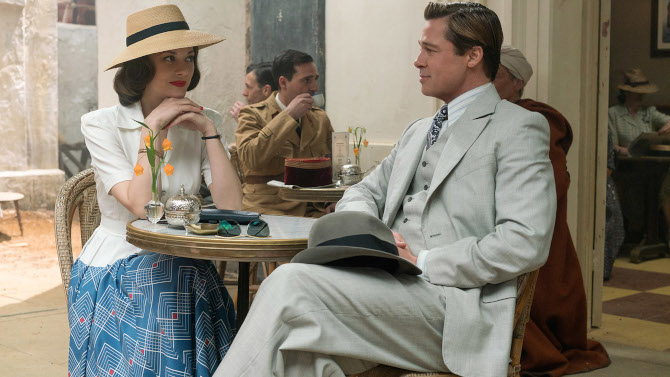
Déjà vu Dalliance
Channeling the mesmeric movies churned out by the studio system back in the 1930s and 40s, Allied (2016), directed by Robert Zemeckis, channels the likes of Morocco, Casablanca, Across the Pacific, Gilda, To Have and Have Not, and numerous others – attempting to find a spark from the classic themes of melodrama, romance, suspense and the epic nature of the annals of the cinematic past, with quite successful results. Set the year Casablanca and Across the Pacific were released – 1942, the story in fact starts in Morocco, with recently parachuted in Canadian spy Max Vatan (Brad Pitt) meeting up with another undercover agent, Marianne Beauséjour (Marion Cotillard), who will be pretending to be his wife.
-

Tarantinowood
Once Upon a Time ... in HollywoodJuly 28, 2019Once upon a time. . . in Hollywood, a young man named Quentin was fascinated with all things movies. So much did he love those moving pictures of the silver screen that he found a job at the Video Archives, a rental store in Manhattan Beach, California. And, almost like a fateful fairy tale scene in one of his beloved movies, a young Tarantino somehow found his way into the business, becoming a director of success and acclaim. Utilizing his unique vision, he re-purposed those films that he devoured in his long hours at the video store, bringing history alive with a modern spin, melding past and present in most unique ways. With a romantic brainstorm, the acclaimed filmmaker decided that ten motion pictures would encompass his entire filmography, making his most recent effort, Once Upon a Time ... in Hollywood, his second last, a narrative that turns a loving eye to his fantastical hometown – all I’m missing is voice over work from Kurt Russell, and I’ve got the beginnings of my intro to a documentary on the man. A revisionist history of 1969 Los Angeles, Quentin Tarantino writes and directs his least focussed picture, a meandering love letter to the City of Angels. Born in 1963, the filmmaker, who was only the tender age of six the year the movie is set, utilizes his vast knowledge of television and movies to build a vivid picture of that time. Though, by doing so, it also makes for his least accessible feature to date. . . for not only is there graphic violence, much like all of his other pictures, but, to my estimation, you also have to be a passionate film history buff while also needing to have a love for the way movies are crafted to truly appreciate what Tarantino is doing here.
-
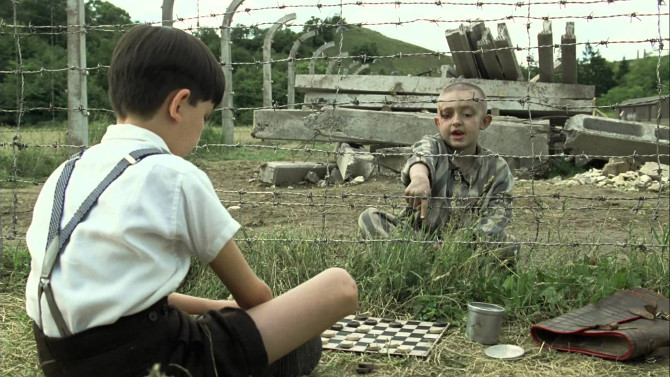
Across the Fence
The Boy in the Striped PyjamasJune 12, 2019An effective method of telling a dark story is often through the eyes of a child. . . and there is arguably no darker event in human history than the Holocaust. Earning praise from audiences worldwide and criticism by academics who lament its inaccuracies, The Boy in the Striped Pyjamas (2008), directed by Mark Herman (who also adapted the story for the screen, based upon John Boyne’s novel of the same name), is an emotional, poignant depiction of one of the most horrific blemishes of our collective past. Bruno (Asa Butterfield) is an eight year old boy living in Berlin. With a father (David Thewlis) moving up in the military, a supportive mother (Vera Farmiga), and an older sister, Gretel (Amber Beattie), they are leaving their life in the big city for a cold home in the rural unknown.
-
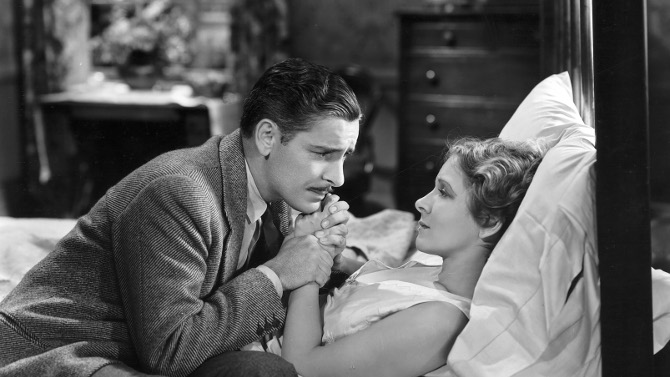
Not the Same Old Song and Dance
ArrowsmithApril 17, 2019An early talkie from iconic director John Ford (Stagecoach; The Quiet Man; The Searchers), 1931's Arrowsmith is no western (despite arrow being in the title), rather, it takes a sweeping look at the life of Dr. Martin Arrowsmith (Ronald Colman – in a Clark Gable-like performance), from an opening scene in his childhood to his work as a researcher in New York – where he develops a vaccine that he administers during a plague. Earning four Academy Award nominations, namely Best Picture, Writing-Adapted, Cinematography, and Art Direction, the filmmaker’s skill is immediately evident – especially impressive as this is an early talkie – where most directors struggled to bring the style from the silent era forward due to new challenges (overly sensitive microphones, stagnant camera work used to show the characters as they speak, etc. . .).
-
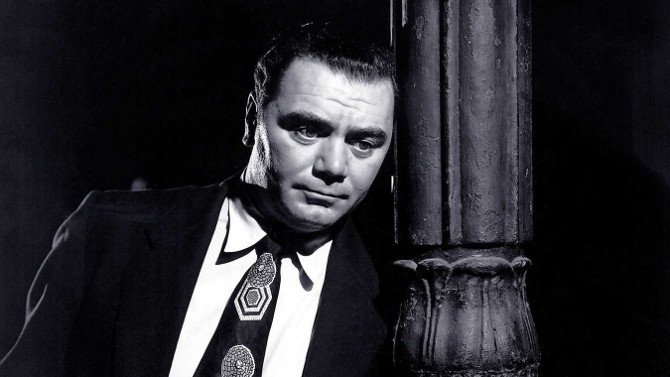
Ernest Falls in Love
MartyApril 9, 2019Taking the world by storm, 1955's Marty, a simple, heartfelt, honest, and poignant story of one man’s Saturday night (and the following Sunday), won both the Palme D’Or at the Cannes Film Festival (the first year the award was named thusly) and Best Picture at the Academy Awards – the first, and to date, only motion picture to win both coveted prizes (though Billy Wilder’s 1946 film noir The Lost Weekend also won the two top prizes, though at that time, the Cannes Award was known as the Grand Prix du Festival International du Film). It was also a major box office sensation. Following thirty-four year old butcher Marty Piletti (Ernest Borgnine – acting since 1951, he had his first big break in 1953's From Here to Eternity), he is an everyman – a warm, caring, short man who is a little heavy round the middle. . . in his mid thirties, he is the last in his large Italian-American family to remain unmarried.
-

I Love You, A Bushel and a Peck
To Kill a MockingbirdApril 5, 2019Arguably one of the greatest adaptations of all-time, 1962's To Kill a Mockingbird is a masterclass in writing (Horton Foote won the Oscar for Best Adapted Screenplay), direction (Robert Mulligan), cinematography (Russell Harlan), and, something not always talked about, casting. You would think that one of the most iconic films to have ever come out of Hollywood would have had an easy time being made. . . yet, Universal really had no interest in making the movie (lacking action, a love story and a typical Hollywood ending, they felt it may feel bland on the screen) – that is, until Gregory Peck fell in love with the piece and signed on to do it (oh, how star power changes a studio’s perspective on things).
-
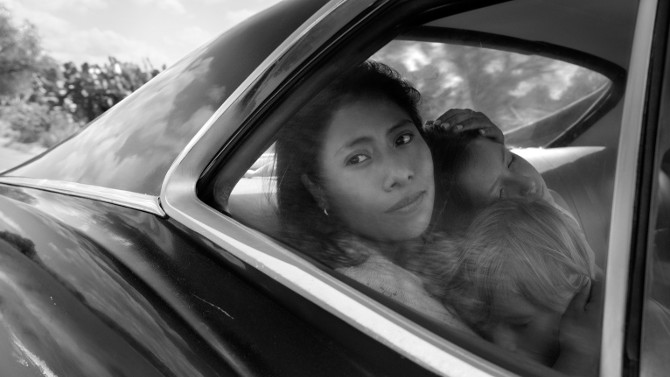
Amor for Roma
RomaFebruary 24, 2019Alfonso Cuarón’s most personal film to date (even more so than Y Tu Mamá También), 2018's Roma seeps to the screen from the filmmaker’s own memories. . . a love letter to his beloved housekeeper who helped raise him in the neighbourhood of Roma in Mexico City all those years ago. His first Netflix feature, the streaming service gave Cuarón the freedom to create his vision his way. . . with a near limitless shoot time, the man not only directed, but also wrote, produced, co-edited, handled cinematography, and even shot the motion picture. Filmed in striking black and white, it is like seeing the most picturesque of monochrome postcards, but eerily intimate ones.
